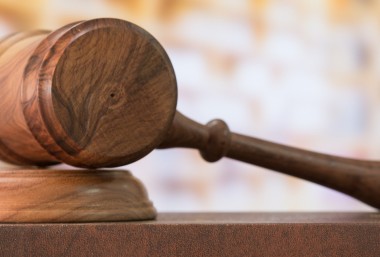On 10 December 2012, amendments to the New Zealand trade marks regulations will come into force.
The main purpose of the amendments is to implement the Madrid Protocol in New Zealand. However, the amendments also introduce fee increases and a number of other minor procedural changes. It was anticipated there would be further changes to hearings office procedures; however, these changes have not been included in the current amendments. Information released by the Intellectual Property Office of New Zealand (IPONZ) indicates that the expected amendments to hearings office procedures will be made in the first quarter of 2013.
Fee increases
The most important fee increases to be aware of are application fees, which will be increased from NZ$100 (approx USD$85) to NZ$150 per class and renewal fees, which will be increased from NZ$250 to NZ$350 per class. Fees for filing oppositions are to be increased from NZ$300 to NZ$350, hearing fees from NZ$750 to NZ$850, declaration of invalidity applications from NZ$300 to NZ$350, and revocations from nothing at present to NZ$350.
Reclassification of old trade mark registrations
The amended Regulations establish a conversion process for old trade mark registrations not classified under the Nice Classification system. Under this process the Commissioner will be able to initiate conversion of these registrations to the current edition of the Nice Classification system.
The conversion process will commence with the Commissioner writing to the owners of the registrations informing them of an intention to convert and the proposed form of conversion. The Commissioner's letter will set a deadline for response of one month from the date of the letter. The owner of the registration will then have the option of accepting the conversion or proposing an alternative form of conversion. If there is no response from the owner, the registration will be converted as proposed. If the owner proposes an alternative form, the commissioner will determine the form of conversion. If the owner disagrees with the form of conversion, they will have the option of requesting a hearing.
It is pleasing to see that trade mark owners will have the opportunity to propose an alternative form of conversion before the conversion is made, and to contest the form of conversion at a hearing. It was not clear from the information available prior to the release of the amended Regulations that this would be the case.
Electronic communication with IPONZ
The regulations will require that in almost all circumstances communication with IPONZ be made electronically through their online case management facility. However, the regulations also allow a mechanism for the Commissioner to approve alternative filing methods in certain exceptional situations. IPONZ has indicated they intend to publish a practice note which will give further guidance on the situations this might cover.
This is a positive sign as prior to the release of the amended Regulations there were indications that electronic communication would be required with no exceptions. Such a move would clearly disadvantage parties who, for whatever reason, were unable to use the online case management facility. However, it remains to be seen what the practice note will contain.
Changes to hearings procedure
The majority of expected changes to hearings procedure have not been made in the current amendments. It is anticipated that further amendments will be made in the first quarter of 2013. However, a few minor changes to hearings procedure that were necessary to ensure compliance with the Madrid Protocol have been made by the current amendments.
Following the amendments, ground(s) of opposition or invalidity will be required to be listed in notices of opposition or applications to revoke on grounds of invalidity, along with the relevant sections of the Act those grounds relate to. If a ground of opposition relates a prior trade mark registration, the registration numbers of the earlier trade marks relied on must also be listed. Additionally, the Commissioner will now set hearings procedure deadlines from when a document is sent by the Commissioner rather than received by the party.
Miscellaneous amendments
As expected, the amended Regulations make late extensions of time for trade mark prosecution available for a period of 2 months after the deadline has passed. They also allow for additional classes of goods and services to be added to trade mark applications until the date the application is accepted for registration. More detail on these amendments can be found here.
Necessary changes
The amendments to the Regulations introduce a number of welcome and necessary changes. It is very positive that the amended Regulations are not as inflexible regarding electronic communication and reclassification of old trade mark registrations as had been feared. It is interesting that the anticipated changes to hearings procedure have not been included in the current amendments. Due to flaws in the proposed changes to hearings proceedings, the delay may end up being positive. It is hoped the additional time to consider the amendments will result in improvements to the final form of the Regulations.
